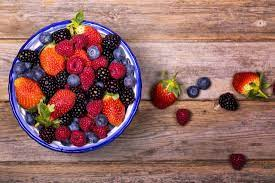 |
The prostate gland is a small, walnut-shaped gland that sits behind the bladder in men. During sexual activity, the prostate gland helps produce semen, the nutrient-rich fluid that carries the sperm during ejaculation.
As some men get older, the prostate gland can become enlarged, a condition known as benign prostatic hyperplasia, or BPH.
In this article, learn what foods to eat to ease the symptoms of BPH.

The prostate gland is controlled by powerful hormones known as the sex hormones, including testosterone.
In the prostate gland, testosterone is converted to another hormone called dihydrotestosterone (DHT). High levels of DHT cause the cells in the prostate to enlarge.
Certain foods and beverages are known to have an impact on prostate health because of their effects on testosterone and other hormones.
Research has found that a diet primarily consisting of meat or dairy products can increase the risk of prostate enlargement and cancer. This is especially true if a person does not incorporate enough vegetables into their diet.
A diet rich in fruits, vegetables, and healthy fats is thought to protect the prostate.
Specific foods known to benefit the prostate include:
- Salmon: Salmon is rich in healthy fats that contain omega-3 fatty acids, which help prevent and reduce inflammation within the body. Other cold-water fish, such as sardines and trout, are also rich in these types of fats.
- Tomatoes: Tomatoes are packed with lycopene, an antioxidant that may benefit prostate gland cells. Cooking tomatoes, such as in tomato sauce or soup, helps to release the lycopene and make it more readily available to the body.
- Berries: Strawberries, blueberries, raspberries, and blackberries are excellent sources of antioxidants, which help to remove free radicals from the body. Free radicals are the byproducts of reactions that occur within the body and can cause damage and disease over time.
- Broccoli: Broccoli and other cruciferous vegetables, including bok choy, cauliflower, Brussels sprouts, and cabbage, contain a chemical known as sulforaphane. This is thought to target cancer cells and promote a healthy prostate.
- Nuts: Nuts are rich in zinc, a trace mineral. Zinc is found in high concentrations in the prostate and is thought to help balance testosterone and DHT. Besides nuts, shellfish and legumes are also high in zinc.
- Citrus: Oranges, lemons, limes, and grapefruits are all high in vitamin C, which may help to protect the prostate gland.
- Onions and garlic: One study found that men with BPH tended to eat less garlic and onions that men without BPH. More research is needed to confirm these results, but onions and garlic are healthful additions to most diets.
Also,
A healthful diet for an enlarged prostate is more than just eating good foods. It also means avoiding other types of foods that are not good for the prostate.
Some foods to avoid include:
- Red meat: Research suggests that going red meat-free may help improve prostate health. In fact, daily meat consumption is believed to triple the risk of prostate enlargement.
- Dairy: Similarly to meat, regular consumption of dairy has been linked to an increased risk of BPH. Cutting out or reducing butter, cheese, and milk may help reduce BPH symptoms.
- Caffeine: Caffeine may act as a diuretic, which means that it increases how much, how often, and how urgently a person has to urinate. Cutting back on coffee, tea, soda, and chocolate may improve urinary symptoms of BPH.
- Alcohol: Alcohol can also stimulate urine production. Men with BPH may find that their symptoms are improved by giving up alcohol.
- Sodium: A high salt intake may increase the urinary tract symptoms associated with BPH. Following a low-sodium diet by not adding salt to meals and avoiding processed foods may be helpful for some men.
source
Medical News Today
https://www.medicalnewstoday.com/.
You can find us on Twitter
You can find us on Twitter









